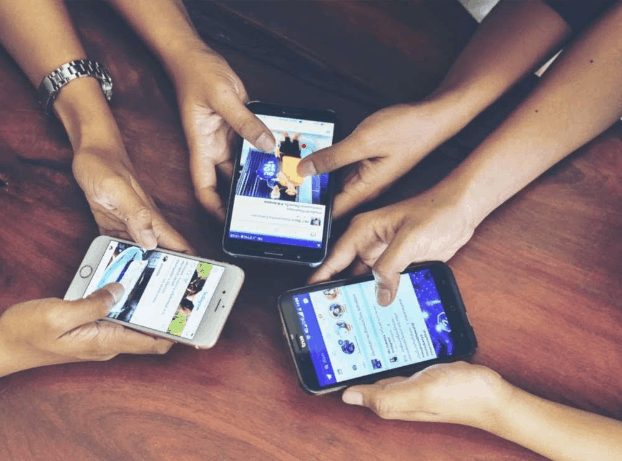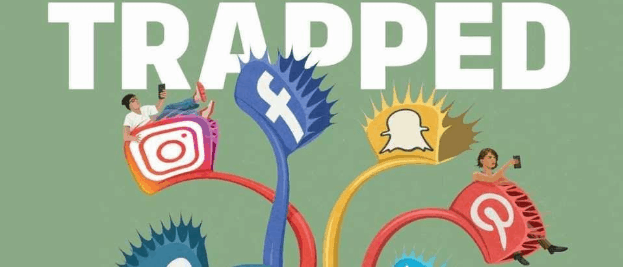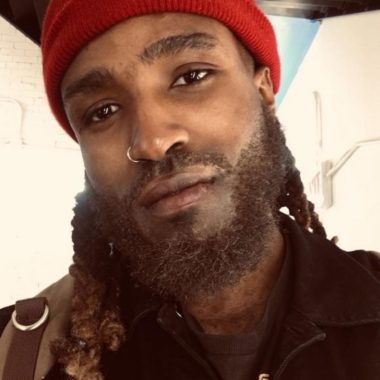Technology has transformed all of our lives and continues to do so at an increasing rate. The post-industrial era is a term coined by French sociologist Alain Touraine in 1969 and later popularized by sociologist Daniel Bell in 1973. This era marked the transition from a factory production-based economy to a service-based economy. The post-industrial era has brought with it a sense of autonomy creativity and newfound individualism.
It’s rather difficult to synthesize the lived experience (mine included) of this era into one pithy phrase, but empathy void comes to my mind as a feature of today’s post-industrial experience. Interestingly, while the internet has connected more people than ever before, it could be argued that the strength of human connections has deteriorated with advancements in tech.
While one can’t solely blame technology, or the “serve me”-based economy for the empathy void, I do believe our society is consumed by individualism.
Narcissism: selfishness, involving a sense of entitlement, a lack of empathy, and a need for admiration, as characterizing a personality type.
In the late 1970s, researchers Robert Raskin and Calvin Hall developed questionnaires designed to assess empathetic and narcissistic traits. The Narcissistic Personality Inventory (NPI) in particular was designed to test for narcissism, while the Interpersonal Reactivity Index was designed to assess empathy. These tests, namely the NPI, have become widely used since the early 1980s.
For over three decades now, researchers have tested college students, and the results are stunning. Today, 70 percent of students score higher on narcissism and lower on empathy, whereas the inverse was true of students in the 1980s, who tested more empathic by 70 percent. While studies vary, the general consensus in the social sciences is that narcissism is rising or has risen.
“Empathy underlies virtually everything that makes society work – like trust, altruism, collaboration, love, charity. Failure to empathize is a key part of most social problems – crime, violence, war, racism, child abuse, and inequity, to name just a few,” Dr. Bruce D. Perry, a behavioral science professor, and psychiatrist wrote in 2010.
How do platforms like Facebook and Instagram affect our mental health? To start, social media apps such as Tinder and Snapchat are designed to be addictive. In essence, the goal is to keep you on their platforms for as long as possible. By design, social media exploits your psychology: with every like and notification, dopamine is released in your brain, producing a sense of satisfaction, turning your phone into a handheld slot machine.
Former Facebook president Sean Parker was quoted as follows: “It’s a social-validation feedback loop; it’s exploiting human psychology, and we implemented it consciously.”
 Instagram is probably the most suitable platform for narcissistic promotion and is arguably even less community-oriented than other platforms. Online, you can become anyone you want to be without having to work for it. Peruse Instagram and you’ll be flooded by an abundance of self-proclaimed models, fitness trainers, god-fearing individuals, influencers, and other self-aggrandizing titles with no merit, just a proof of concept at best.
Instagram is probably the most suitable platform for narcissistic promotion and is arguably even less community-oriented than other platforms. Online, you can become anyone you want to be without having to work for it. Peruse Instagram and you’ll be flooded by an abundance of self-proclaimed models, fitness trainers, god-fearing individuals, influencers, and other self-aggrandizing titles with no merit, just a proof of concept at best.
Social media isn’t to blame for the existence of psychological issues, but it does have an impact on our behavior, and how people experience and value life. Social media puts a framework around our best and worst traits, then amplifies and rewards them.
The drowning of Jamel Dunn is a troubling and unfortunate example of our societies growing ambivalence ––– what is reality? In 2017, Jamel Dunn was filmed drowning in a pond near his home in Cocoa, Florida by a group of five teenagers (unknown to him). The teens recorded, taunted, and laughed as he struggled to stay afloat. The young men were heard on camera telling Jamel, “You’re going to die. We won’t help you.”
Watching the horrifying clip of Jamel struggling, one can assume that these teens were detached from reality, and recording the drowning of a human being through their smartphones, like watching a movie. Five teenage boys between the ages of 14 and 16, chuckled as Jamel died and didn’t call the police: no accountability, no empathy. Jamel’s body was found days later. Authorities estimate that he struggled for 10 minutes before passing. The drowning
Our collective unease as a society when discussing mental health is further buried in the superficiality of social media. Social media preys upon our preexisting psychological faults and deficiencies; it doesn’t create them. The long-term effects of Social Media has on our minds is still uncertain. However, it seems that our world is changing faster than our minds are adapting.
Roderick Thomas is an NYC-based writer and filmmaker (Instagram – @Hippiebyaccident).











One Comment
Pingback: Technology and the empathy void: narcissism on the rise | Widthness Social Media